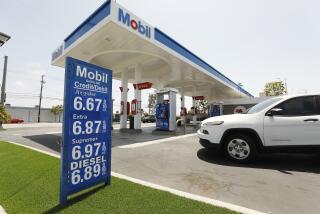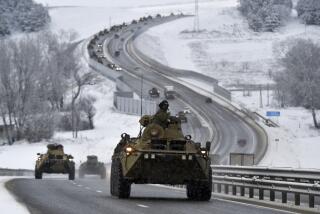Want to Be Held Hostage Again? : As the oil reserve dips lower and lower, so does our capacity to withstand another oil shock.
- Share via
Since the late 1970s, the U.S. government has been buying and stockpiling oil in huge Gulf Coast salt domes, insurance against the day when another cutback in foreign-oil supplies could threaten the nation’s economic well-being. So far, more than $19 billion has been spent to store 580 million barrels in the Strategic Petroleum Reserve.
Now, the Bush Administration, mainly for budgetary reasons, proposes to cap the reserve at 750 million barrels. Influential members of Congress, though, say that national security requires a 1-billion barrel stockpile. Who’s right? In this case, a prudent respect for international uncertainties argues for a billion-barrel reserve.
Back in the 1970s, when the global economy was rocked by two major oil shocks, the major industrialized nations agreed that each would stockpile reserves equal to 90 days of oil imports. Currently, though, the U.S. reserve, once at 118 days of imports, has slipped to an equivalent of only 81 days of reserve.
The problem isn’t so much that total U.S. petroleum demand has been rising but that domestic oil production has steeply declined, leaving Americans dependent on overseas suppliers for close to 50% of the oil they consume. That has shrunk the strategic reserve’s replacement capability. It has also increased the economy’s vulnerability to supply interruptions from abroad.
The reserve is a political asset as well as an economic one. It acts as a disincentive to such deliberate cuts in foreign oil deliveries as the Arab oil embargo of 1973-74.
It also should serve to calm potential market panics if production losses due to chaotic local conditions, like the trauma of the 1979 Iranian revolution, recur. Americans shouldn’t forget that it took years to recover from the economic damage of the huge price hikes that the loss of Iranian oil encouraged.
A billion-barrel reserve-- built up at a time when oil prices are still relatively low--would be comparatively cheap insurance against an uncertain future.
More to Read
Sign up for Essential California
The most important California stories and recommendations in your inbox every morning.
You may occasionally receive promotional content from the Los Angeles Times.













